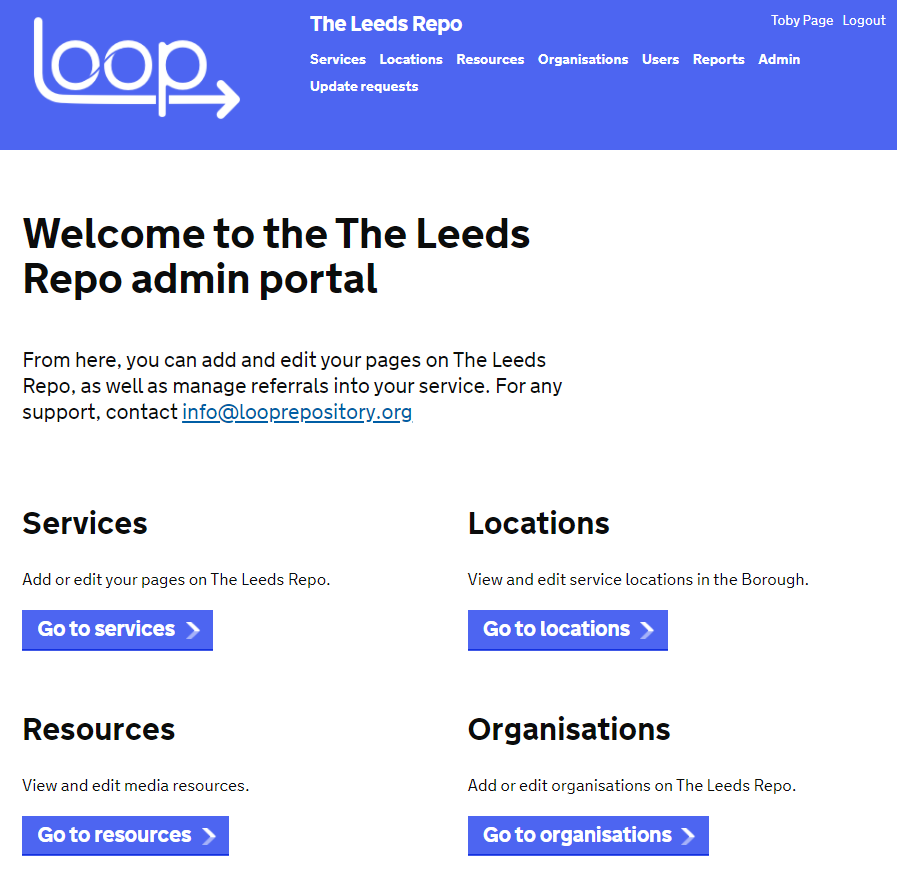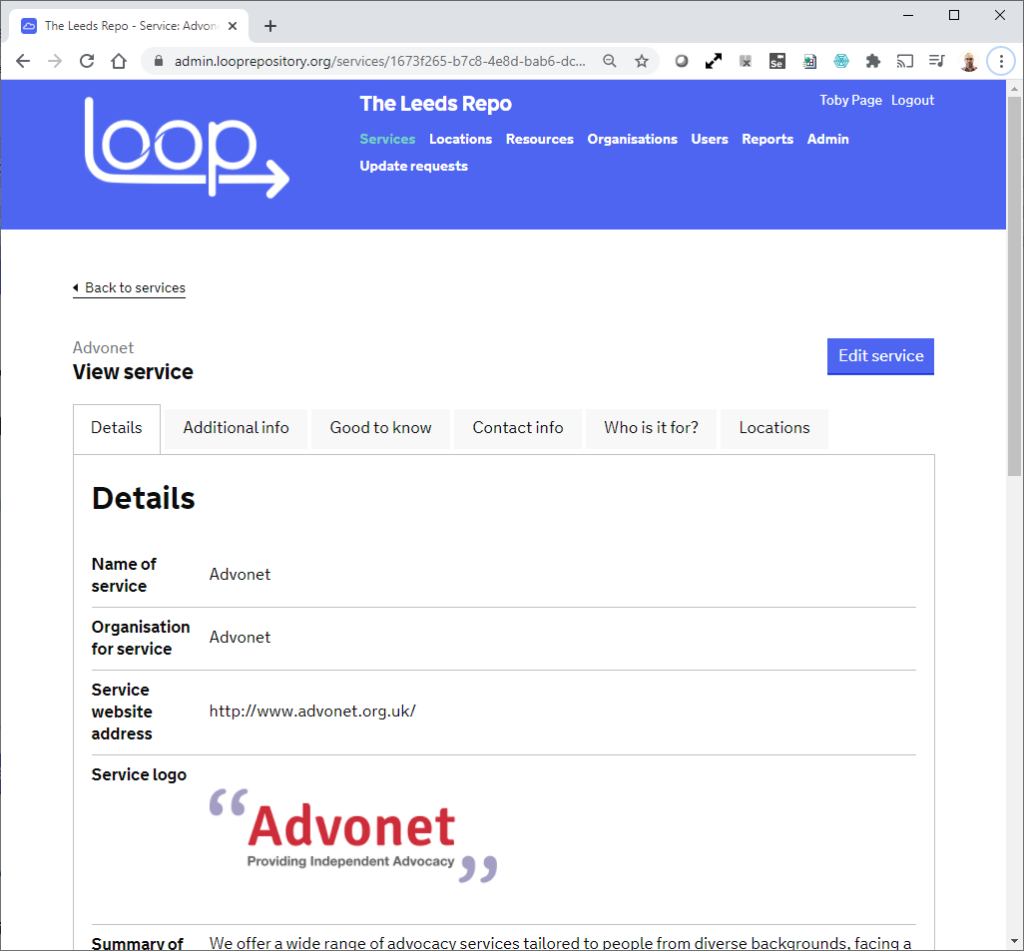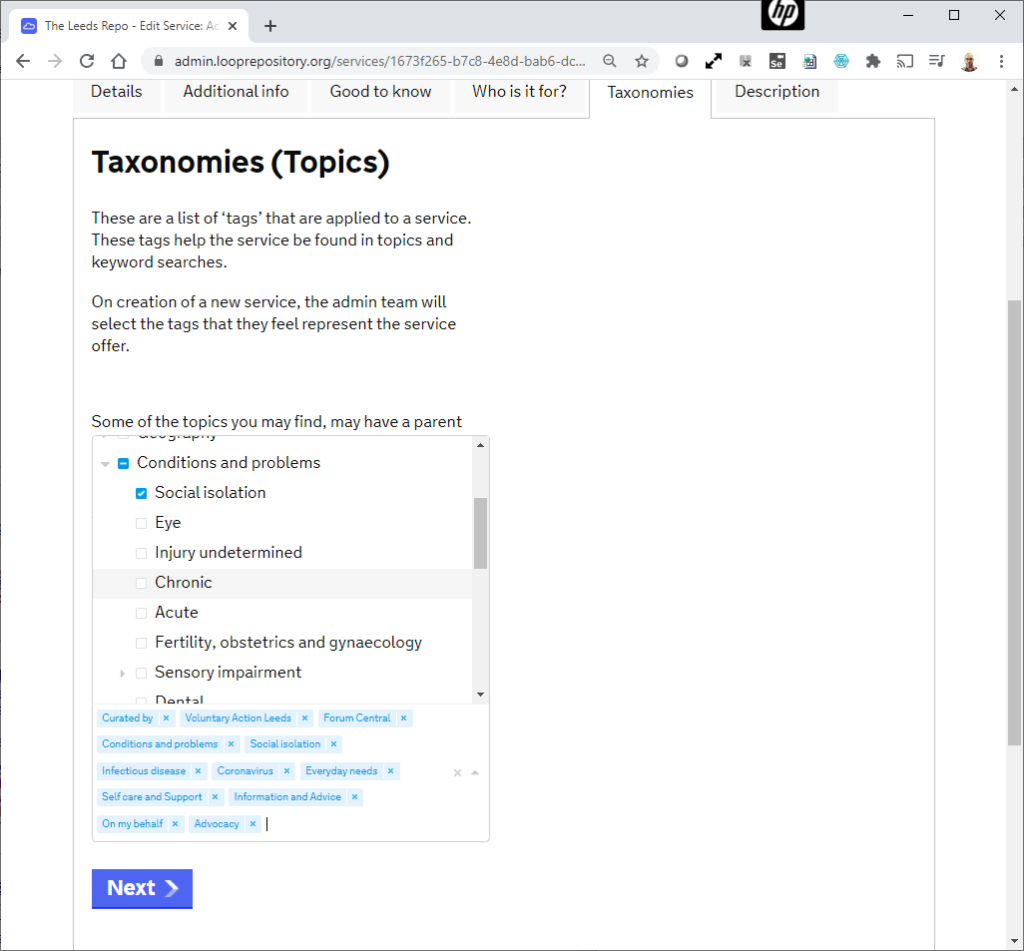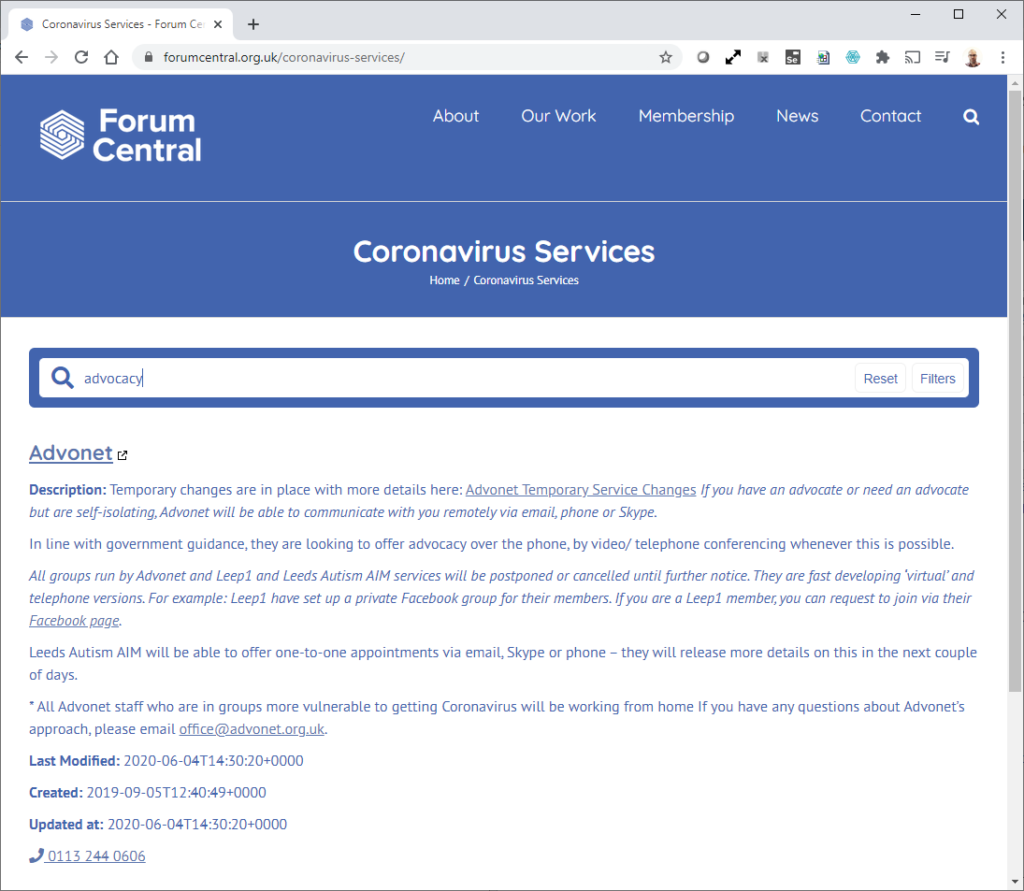[ed: This post comes to us from Toby Page and Nick Parker of the Leeds City Digital Partnerships Team. Welcome, Toby and Nick!]
Leeds, a city in the North of England, has developed an open-source API-based service directory data infrastructure. LOOP (Leeds Open Online Platform) provides a way for the city’s local authority, voluntary sector and private partners to collaborate on a shared information repository.
The City Digital Partnerships Team is currently leading the project. We are hosted by Leeds City Council (the local authority of the city of Leeds in West Yorkshire, England), but our focus is to work together across all of the organisations that deliver health and social care to the people in the city.
LOOP re-uses elements from a project in Kingston-upon-Thames in London, in which a local authority used the Open Referral data model to build a MySQL database with APIs and an admin interface. Through LOOP, third parties can build their own websites and systems that connect to our API. We’re also developing a cross-platform widget that can render content on other websites.

Initially this project didn’t have any specific interoperability or integration requirements – but we quickly recognised there are benefits of being a part of a broader community of practice, and the potential to exchange interoperable technology in the future. We also knew that, in order to bring together many partners, it was vital to have a data standard to which all could agree. That’s why we enthusiastically decided to use the Open Referral data model.
Adopting Open Referral’s data model for our foundation meant that we didn’t have to negotiate alignment of different data structures owned by different directories. We had a single structure to align different databases and an approach to inter-agency and cross-sector collaboration for managing information. If we hadn’t had that already, we’d still be arguing about whose to use, we’d have made nowhere near this progress. Now can work from a level of a maturity that gives us clarity and confidence to push forward. As we have conversations with suppliers who build proprietary systems for other directories, this internationally-supported standard gives us leverage which makes those conversations much more productive; if it had just been ‘Toby and Nick’s data model,’ we wouldn’t have been able to get traction.
§

The LOOP platform enables multiple curators to coordinate their efforts on maintenance of data about the same services in a single, shared directory: the data can be gathered once, managed centrally, and used many times.
The local council and a number of voluntary sector organisations are now rebuilding their websites to include content from LOOP. In fact, one has already integrated LOOP content in an area of their new site relating to how organisations are delivering services differently in the coronavirus pandemic.
We found that many non-profits identified the issue of service directory provision as one that they wanted to work together on. They stand to benefit from improved flow of information immediately – improving their access to this information can help them deliver better services, with an increased reach.
Of no less importance are public sector organisations, some of which have a statutory obligation under the 2015 Care Act to provide information and advice relating to health and care. They also have more resources to keep this information up to date, and higher standards in relation to data quality. Some of these larger organisations may suffer from problems of trust – and although we don’t believe such mistrust is fully justified, we are working to change this perception by cultivating a community of practice. It’s not a technical problem, it’s really a cultural problem.
Now that we’re getting these stakeholders together, you can see them start to think in new ways about how they can manage their records together. People are starting to collaborate on shared records about local services, and discussing the best ways to tag that record for their different purposes.
We have now appointed a Community Builder, who is specifically tasked with facilitating our network of curators from across multiple bodies. The Community Builder role will broker conversations about how the taxonomy is represented, how it meets the needs of different organisations and how the community functions operationally. We are looking at several models, including taking ownership of records across agencies, potentially enabling multiple different owners.
One way we’ve adapted HSDS for LOOP is to add the “Resources” information entity – as in, information resources. Initially we just had organisations and accompanying service listings, but we recognised that there was a lot of information commissioned by the city – like pamphlets, videos etc. Now in our database we can apply taxonomy tags to both services and resources, so for instance when a website wishes to provide targeted health and care information (by applying relevant tag filters) the platform will return both services (local support groups) and also content – e.g. healthy eating videos from the NHS. We don’t want to become a link aggregator, we don’t want to host all these things, but this consistent approach of tagging using agreed and standard taxonomies enables us to effectively signpost to resources hosted elsewhere.

Also, in our taxonomy there are some tags that indicate whether information about a service is clinically assured for a given purpose. So this entails a third layer of credibility: a service can be accredited, information about a service can be verified, and then the service record itself can be endorsed as relevant for a given purpose. This enables us to work with professionals who are able to validate how appropriate this or that service or resource is for specific types of users.
Although our focus is Leeds, we are also working with a number of partners from across England. We are one of a number of councils who have been working together to define the Open Referral UK data standard. Organising community service data in a common way makes it easier to build directories, design new features, aggregate key data and ultimately to reduce duplication. The standard is now on its way towards adoption by councils throughout the UK. It is already being used in Buckinghamshire Family Information Service, and a series of loneliness pilot projects led by the LGA, for example.

Moving forward, we look forward to growing the LOOP community within Leeds, as well as being part of the ongoing evolution of Open Referral’s data specifications and community of practice. We would welcome any conversations about collaboration, our codebase and the LOOP Programme.


Leave a Reply